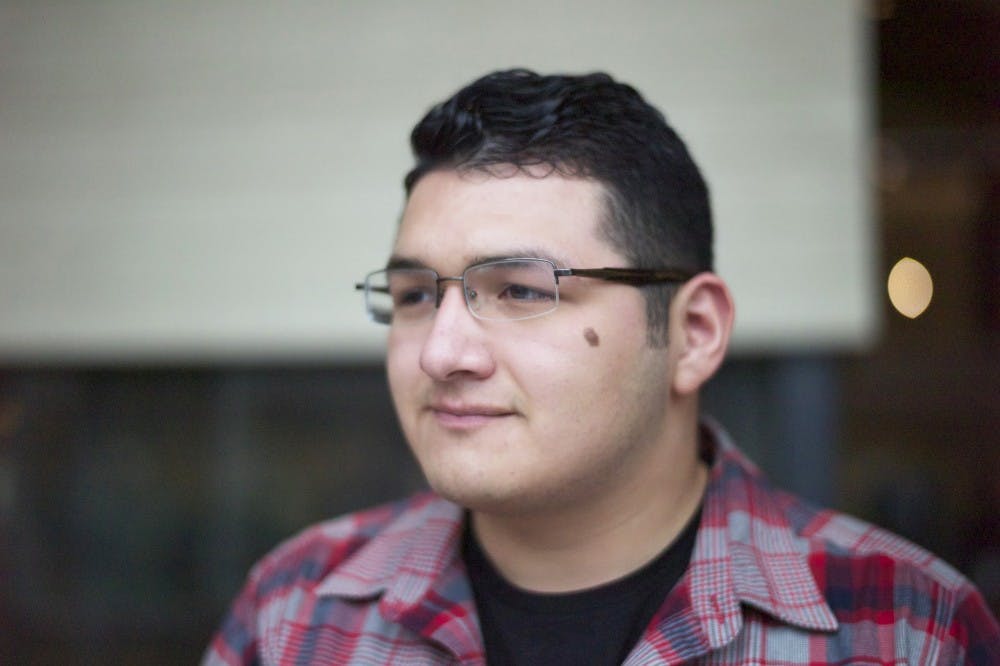By Emily Neelon |
After a long day studying in the library, sophomore Sabrina Mohammed wants nothing more than to curl up in bed and go to sleep. But the nursing major and sister to six goes home to help her single father take care of her five younger siblings.
As the first person in her family to go to college, she believes her dad can’t comprehend what it takes to be a successful college student.
“I struggled with my dad understanding,” Mohammed said. “He still expects me to fulfill the same role I filled before.”
Unlike students that come from families with college degrees, Mohammed and other first generation students must learn to navigate college and its commitments on their own. Jeromy Koffler, director of student activities, recognizes the barriers first generation students face.
Making up 10 percent of UP’s student population, first generation students often lack knowledge on how to apply to college, fund their education, and balance their social, academic and family commitments.
“One of the biggest struggles of first generation students is they don’t always know what they need to know about the financial aid process,” Koffler said. “The FAFSA is a big mystery, and their families might not understand why the FAFSA’s so important.”
Koffler, Brenda Greiner of the Shepherd Freshman Resource Center, Mehling Hall Director Gina Loschiavo and Michele Leasor, program coordinator for the competitive scholarships and grants and honors program, formed an ad hoc committee in 2011 devoted to finding resources and funding programs for first generation students at UP.
Their primary goal is to improve the retention rate of first generation students who are at a higher risk for dropping out than students from families with college backgrounds.
“First generation students are kind of like pioneers in their own families,” Koffler said. “They don’t know what they don’t know, but they’re here and they’re looking around, trying to figure it all out. In a way, they’re paving their own way.”
Junior communication and Spanish major Ezequiel Delgado is the first person in his family to pursue an education beyond middle school. A pioneer in his own right, Delgado pushes himself to succeed and takes his coursework seriously.
“There is no one in my extended family that has a degree of any kind,” Delgado said. “All of my older relatives had to drop out in elementary or middle school. I feel like I have a big responsibility to do well and further my education even more after I graduate.”
The ad hoc committee has provided support for students like Mohammed and Delgado by holding the orientation event “FirstUP”, a financial aid night in the fall, and a barbeque at the end of spring semester. Through their work, the committee has discovered the importance of peer mentoring.
“We’re trying to build something,” Koffler said. “We’re on the cusp of something that could be really big and really cool.”
Although the committee has begun providing programming, Koffler hopes to expand their work to build a permanent structure to support first generation students. With the Mail Center and Office of Residence Life moving out of the first floor of the Buckley Center, Koffler aspires to claim the space as a center for first-generation student support. He hopes to hire more staff in the next budget cycle.
“Enlisting students that are also first generation - who’ve done it successfully - and have them as mentors for new students has been a very successful model at a lot of different schools,” Koffler said. “But we don’t have the resources right now to develop a really vibrant, solid peer-mentoring program until we can add capacity to staff.”
After graduation, Delgado hopes to get involved in public service by mentoring other first-generation students through involvement in AmeriCorps or Peace Corps.
“I don’t want people when they think of first [generation students] to provide pity or sympathy, because I come from a very different set of backgrounds,” Delgado said. “I’m just another student trying to do well.”
Delgado and Mohammed both wrestle with the lack of racial and socioeconomic diversity on UP’s campus, with a student population that is 67 percent white. Nineteen percent of first generation students come from families that make less than $35,000 a year and 11 percent come from families that make less than $25,000.
“Because I’m Latino and a lot of my friends here are white, when controversial stuff happens…a lot of people ask me what I as a Latino think about [it],” Delgado said.
Mohammed, who is on on a full-ride scholarship through the Bill and Melinda Gates Foundation, struggled to adapt to the demands of college her first semester. Despite the challenges that came with being a first generation student, she was able to find motivation in the barriers she faced.
“A lot of the time when I don’t know something, I push myself harder to accomplish something that seems impossible,” Mohammed said. “I don’t think anything is impossible for anyone.”
Emily Neelon is the Faith and Fellowship Editor of The Beacon. She can be reached at neelon17@up.edu or on Twitter @neelonsays.








